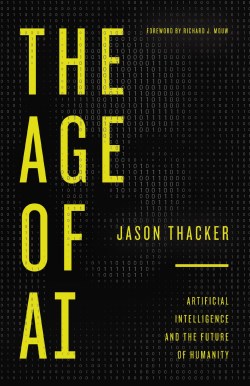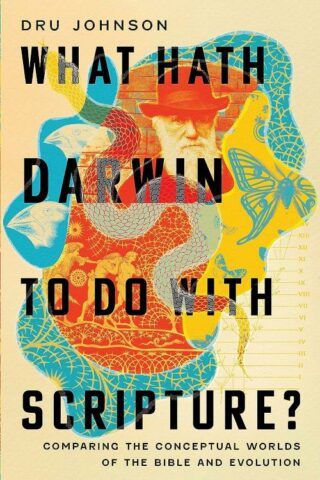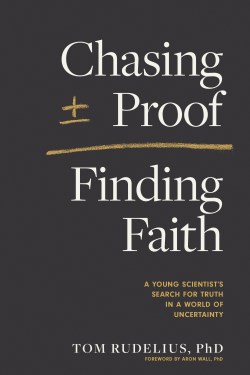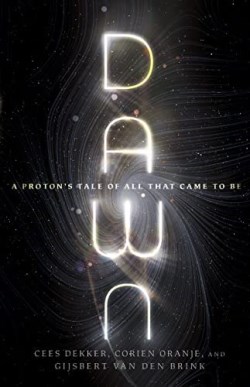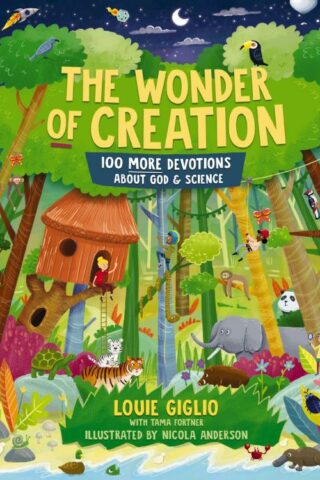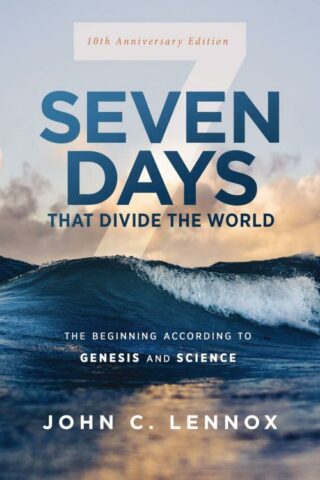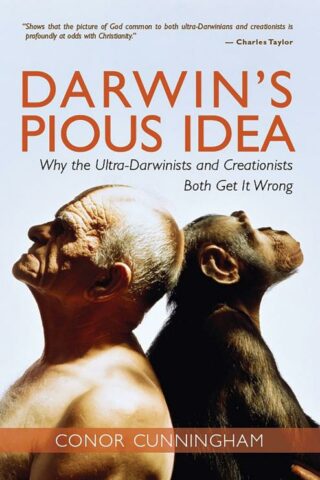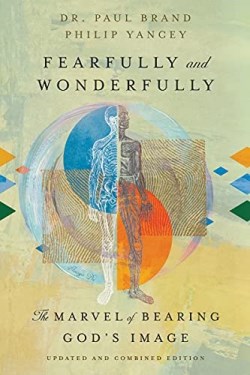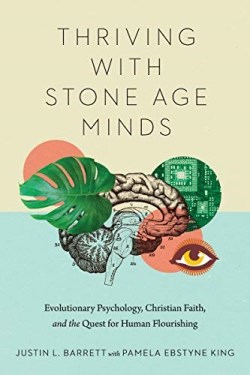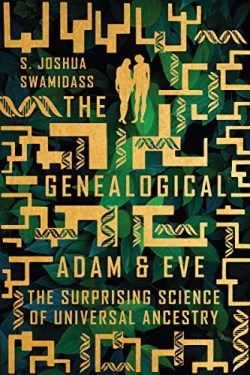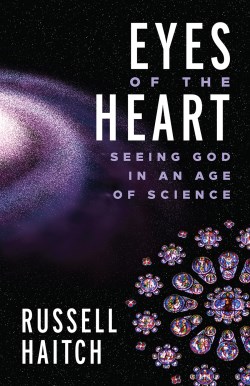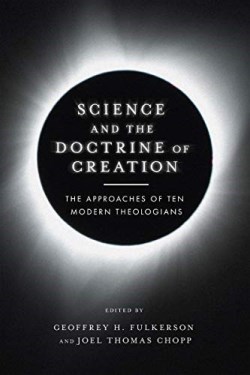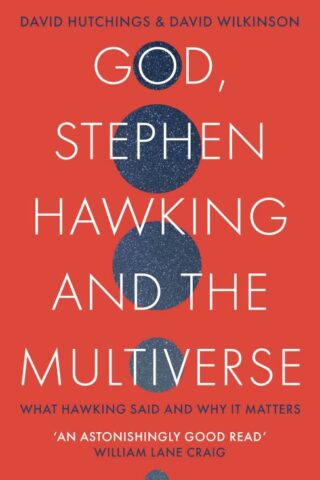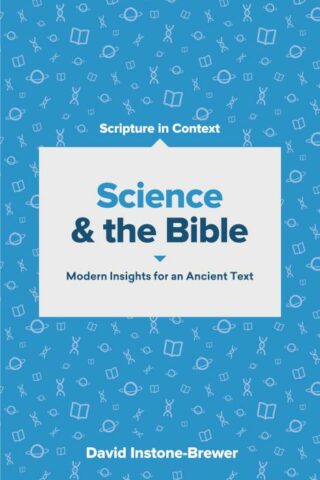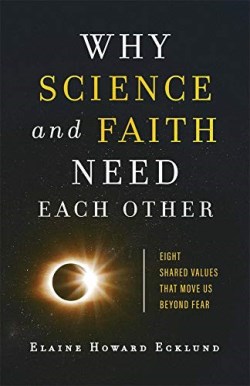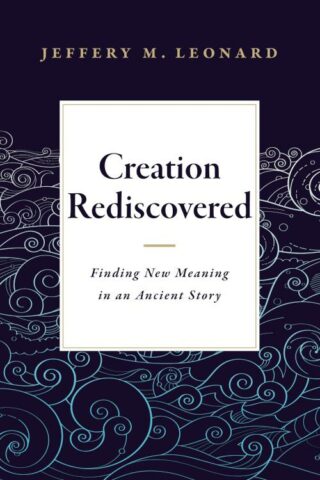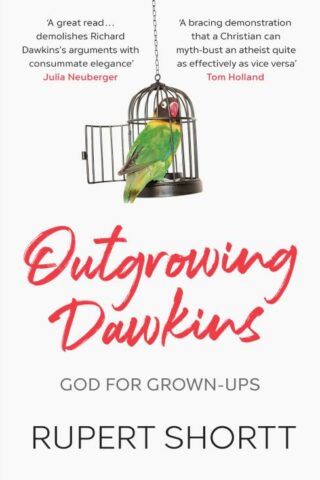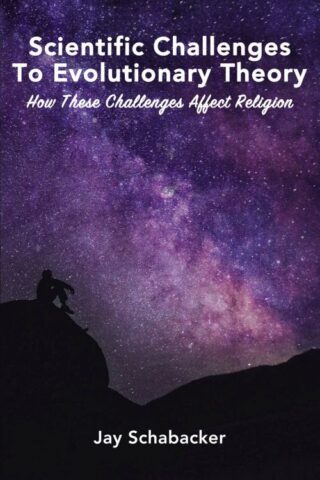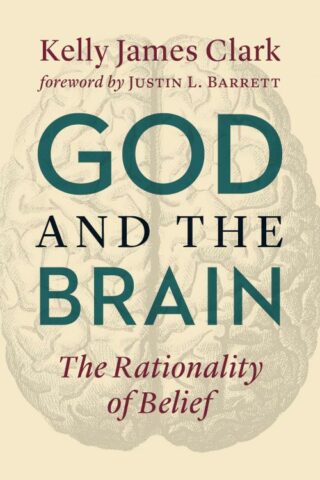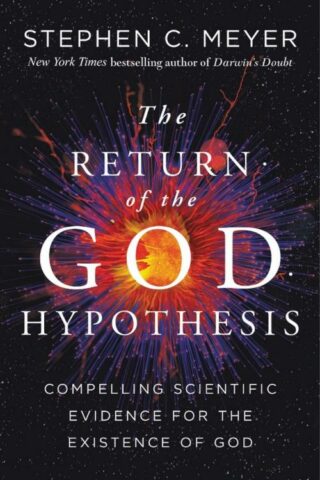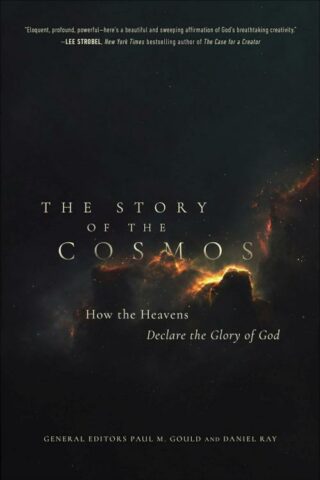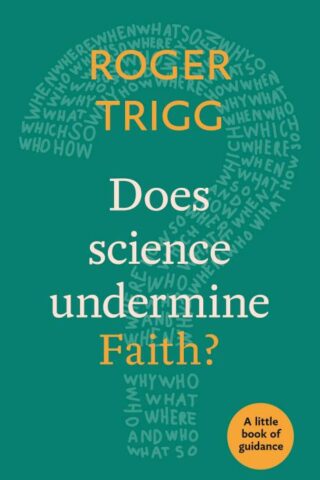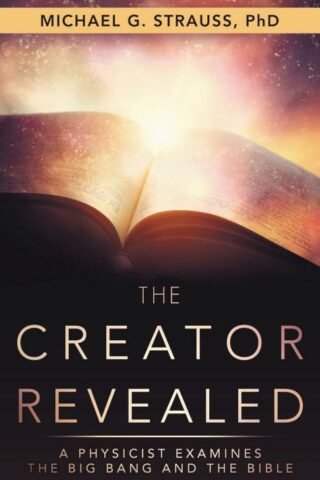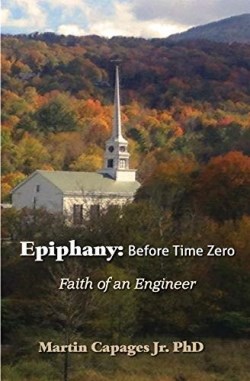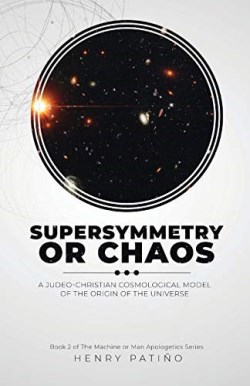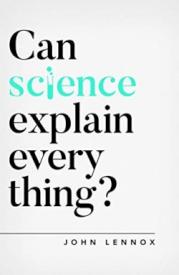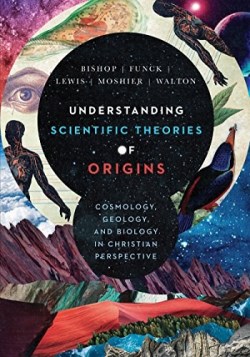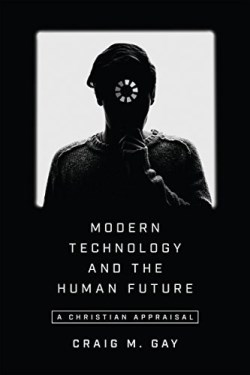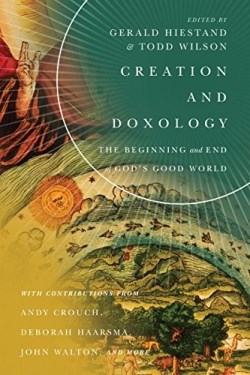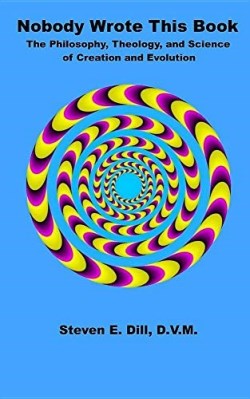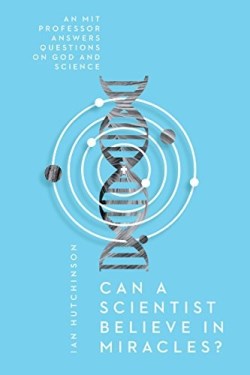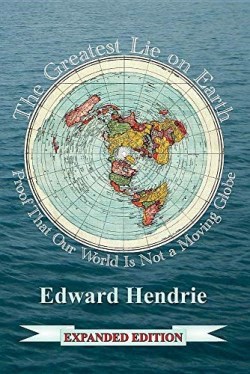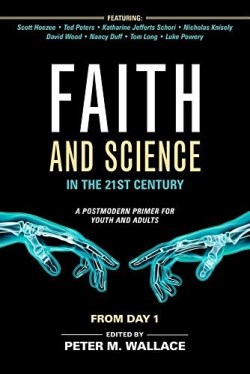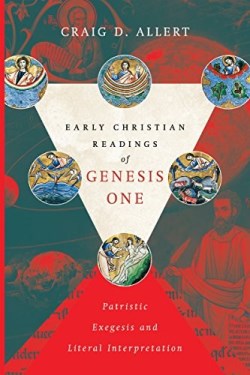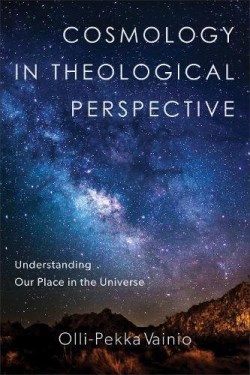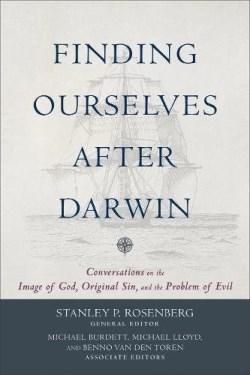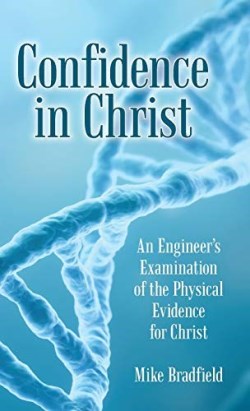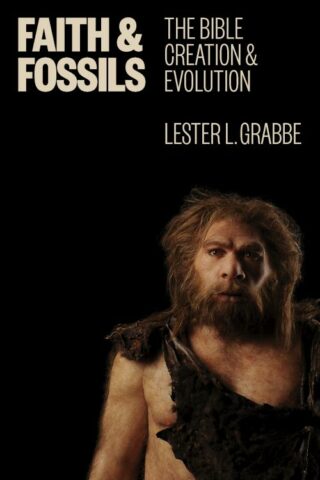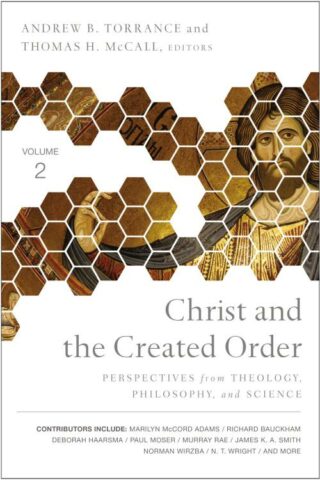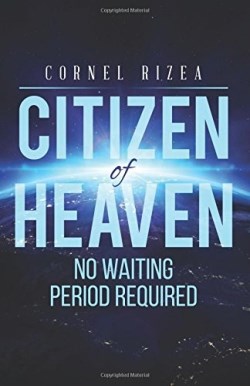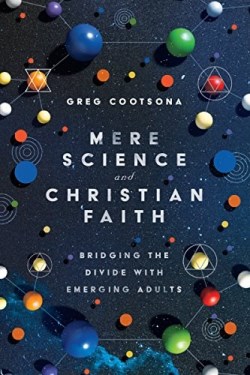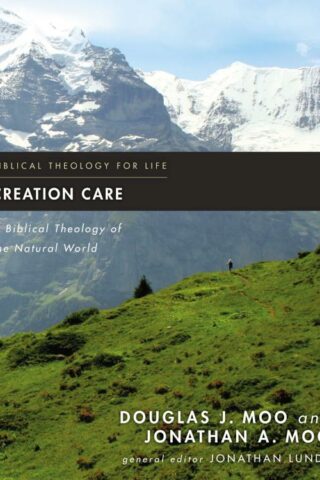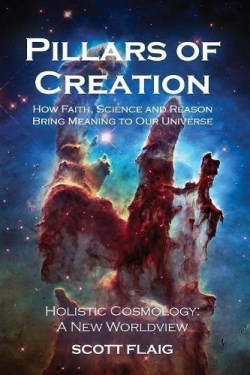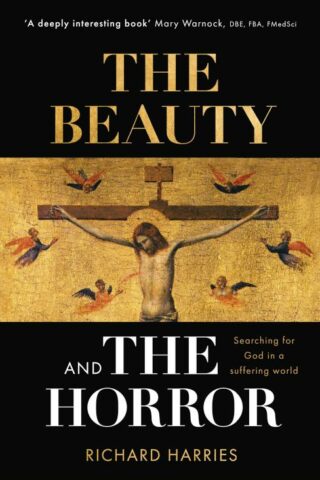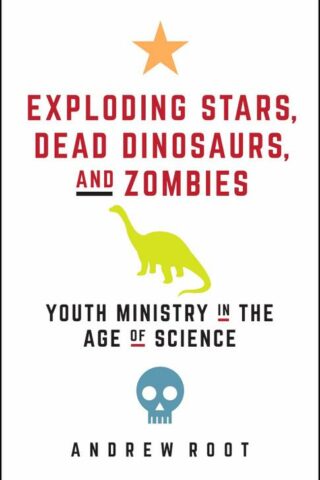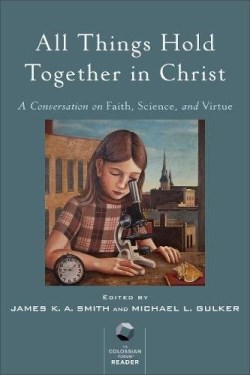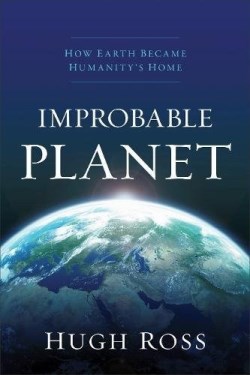Science and Faith
Showing 1–50 of 251 resultsSorted by latest
-
Age Of AI
$19.99Add to cartAre robots going to take my job? How are smartphones affecting my kids? Do I need to worry about privacy when I get online or ask Siri for directions? Whatever questions you have about AI, The Age of AI gives you insights on how to navigate this brand-new world as you apply God’s ageless truths to your life and future.
We interact with artificial intelligence, or AI, nearly every moment of the day without knowing it. From our social media feeds to our smart thermostats and Alexa and Google Home, AI is everywhere–but how is it shaping our world?
In The Age of AI, Jason Thacker, associate research fellow at the Ethics and Religious Liberty Commission, helps us navigate our digital age in this thoughtful exploration of the social, moral, and ethical challenges of our ongoing interactions with artificial intelligence.
Applying God’s Word to this new AI-empowered age, Thacker sheds light on:
*How Christian truth transforms the way we use AI
*How AI affects us individually, in our relationships, and in our society at large
*How to navigate the digital age wiselyWith theological depth and a wide awareness of the current trends in AI, Jason is a steady guide who reminds us that while technology is changing the world, it can’t shake the foundations of the Christian faith.
-
What Hath Darwin To Do With Scripture
$24.99Add to cartBelieve it or not, the book of Genesis might have been the most Darwinian text in the ancient world. And throughout the opening books of Scripture, we find ideas that would also become prominent insights of the biologist Charles Darwin interlaced with the Bible’s one-of-a-kind origin story. Key plot markers come to the surface again and again, driving the history of Israel and the Jesus movement forward to its cosmic completion.
Biblical scholar Dru Johnson calls us beyond typical creation-versus-evolution debates to explore the conceptual worlds underlying both Scripture and evolutionary science. He points toward remarkable continuities and discontinuities between the Bible’s central concerns and those of Darwin and modern science-ideas so fundamental that they can easily escape our notice.
The Hebrew creation accounts, Johnson argues, weave together three key themes on the origins and development of humans and animals, themes that are also essentially Darwinian:
*the connection among scarcity, cooperation, and violence
*the fitness of creatures to their environments
*the genealogical aims of sexual reproductionCan the ideas of Scripture and evolutionary science be mutually illuminating? When we enter deeply into the metaphysical imagination of the biblical authors, we discover surprising ways in which the two accounts converge-and conflict.
-
Chasing Proof Finding Faith
$17.99Add to cartHe had science and an Ivy League pedigree-why did he need God? Immersed in his physics studies at Cornell, Tom Rudelius never thought much about God until his brother, a new convert to Christianity, challenged him to explore faith. To placate his twin, he reluctantly began exploring the Bible and the life of Jesus. Seeking proof of God’s existence, he found himself in a world of uncertainty, faced with plenty of reasons for both faith and doubt.
In Chasing Proof, Finding Faith, Tom, now a rising young theoretical physicist, traces his journey to unexpected faith, through subsequent doubt and anxiety, and ultimately to a firmer, life-transforming allegiance to Jesus. Along the way, he explores some of the issues he wrestled with, including:
*Creation and cosmic origins
*The problem of evil and suffering
*The compatibility of miracles with science and the plausibility of Jesus’ resurrection
*The reliability of the BibleWhile Tom never found absolute proof of God or Christianity, he ultimately concluded that the existing evidence for both is compelling and compatible with science. His searingly honest story is a potent guide for those doubting or exploring faith.
-
Dawn: : A Proton’s Tale Of All That Came To Be
$22.99Add to cartThis is an adventure that began almost fourteen billion years ago, one that so often threatened to fail. It’s truly a miracle I’m still here. Despite everything, I wouldn’t have wanted to miss one second of it. And the best is yet to come.
With the help of an extraordinary narrator, you’re invited to discover the wonder and drama of the history of the cosmos. In this story we follow the journey of one proton who comes into existence at the beginning of creation and makes it all the way through history to today. By becoming a part of atoms and molecules that turn up at some of the universe’s most important moments, our friend Proton witnesses emerging galaxies, the origin of life, its evolution into a wild diversity of life forms, the first human beings, the birth and life of Jesus, the beginnings of the Christian church, all the way up to the present day. Through it all, the mysterious, seemingly unbelievable plans of the Creator continue to unfold. . . .
Combining its authors’ mind-bending scientific knowledge, storytelling skills, and insights from theology, Dawn provides a fresh look at the fundamentals of cosmology, evolutionary biology, and the good news of God in one overarching adventure–in the form of a gripping story. Readers who love both science and Scripture will discover an engaging, thought-provoking tale that reminds us we each have a big place in God’s plan of creation–even if we’re very, very small.
BioLogos Books on Science and Christianity invite us to see the harmony between the sciences and biblical faith on issues including cosmology, biology, paleontology, evolution, human origins, the environment, and more.
-
Wonder Of Creation
$18.99Add to cartIn this captivating follow-up to the bestselling kids’ devotionals Indescribable and How Great Is Our God, founder of the Passion movement Louie Giglio offers more mind-blowing, faith-building scientific facts and biblical truths about the wonder of God’s creation.
Well-known for his powerful messages about science and the Bible, Louie Giglio has a passion for inspiring kids to notice, enjoy, and be in awe of God’s creation. In The Wonder of Creation, children will find new delight in God’s creativity with 100 devotions that explore:
*Animals–from honeyguide birds to flying snakes to white rhinos
*Space–from black holes to volcanic moons to gamma-ray bursts
*People–from optical illusions to brain freezes to our immune systems (including germs, viruses, and vaccines)
*Earth–from rainbow rivers to blue lava to flowing glaciers
*And much, much more!With engaging illustrations and striking photography, this fun and informative book is ideal for children ages 6-10. Each of the 100 devotions features a scientific fact or an easy activity for exploring faith, a short Bible verse, and a closing prayer.
-
7 Days That Divide The World 10th Anniversary Edition (Anniversary)
$18.99Add to cartNow revised and updated–John Lennox’s acclaimed method of reading and interpreting the first chapters of Genesis without discounting either science or Scripture.
What did the writer of Genesis mean by “the first day?” Are the seven days in Genesis 1 a literal week or a series of time periods? If I believe that the earth is 4.5 billion years old as cosmologists believe, am I denying the authority of Scripture?
With examples from history, a brief but thorough exploration of the major interpretations, and a look into the particular significance of the creation of human beings, Lennox suggests that Christians can heed modern scientific knowledge while staying faithful to the biblical narrative. He moves beyond a simple response to the controversy, insisting that Genesis teaches us far more about the God of Jesus Christ and about God’s intention for creation than it does about the age of the earth.
With this book, Lennox offers a careful and accessible introduction to a scientifically-savvy, theologically-astute, and Scripturally faithful interpretation of Genesis.
Since its publication in 2011, this book has enabled many readers to see that the major controversy with which it engages can be resolved without compromising commitment to the authority of Scripture. In this newly revised and expanded edition, John clarifies his arguments, responds to comments and critiques of the past decade since its first publication. In particular, he describes some of the history up to modern times of Jewish scholarly interpretation of the Genesis creation narrative as well as spelling out in more detail the breadth of views in the Great Tradition of interpretation due to the early Church Fathers. He shows that, contrary to what many people think, much of the difficulty with understanding the biblical texts does not arise from modern science but from attempting to elucidate the texts in their own right.
-
Darwins Pious Idea
$47.99Add to cartCogent, provocative take on the hot-button subject of evolution
According to British scholar Conor Cunningham, the debate today between religion and evolution has been hijacked by extremists: on one side stand fundamentalist believers who reject evolution outright, and opposing them are fundamentalist atheists who claim that Darwin’s theory rules out the possibility of God.
Both sides are dead wrong, argues Cunningham, who is at once a Christian and a firm believer in the theory of evolution. In Darwin’s Pious Idea Cunningham puts forth a trenchant, compelling case for both creation and evolution, drawing skillfully on an array of philosophical, theological, historical, and scientific sources to buttress his arguments.
-
Fearfully And Wonderfully
$24.99Add to cartDiscover this updated and combined edition of two bestselling books!
The human body holds endlessly fascinating secrets. The resilience of skin, the strength and structure of the bones, the dynamic balance of the muscles-your physical being is knit according to a pattern of stunning purpose. Now Gold Medallion winners Fearfully and Wonderfully Made and In His Image have been completely revised and updated to offer a new audience timeless reflections on the body.
Join renowned leprosy surgeon Dr. Paul Brand and bestselling writer Philip Yancey on a remarkable journey through inner space-a spellbinding account of medical intervention, pain and healing, and the courage of humanity. Discover here the eternal truths revealed by our seemingly ordinary existence. The human body is a window into the very structure of God’s creation and a testament to God’s glory.
-
Thriving With Stone Age Minds
$20.99Add to cartWhat does God’s creation of humanity through the process of evolution mean for how we think about human flourishing?
The emerging field of evolutionary psychology remains controversial, perhaps especially among Christians. Yet according to Justin Barrett and Pamela Ebstyne King it can be a powerful tool for understanding human nature and our distinctively human purpose. In Thriving with Stone Age Minds, Barrett and King provide an introduction to evolutionary psychology, explaining the importance of key concepts such as hyper-sociality, information gathering, and self-control. They then combine insights from evolutionary psychology with resources from the Bible and Christian theology, all focused on the question, What is human flourishing? When we understand how humans still bear the marks of our evolutionary past, new light shines on some of the most puzzling features of our minds, relationships, and behaviors. One key insight of evolutionary psychology is how humans both adapt to and in turn alter our particular environments, or “niches.” In fact, we change our world faster than our minds can adapt–and then gaps in our fitness emerge. In effect, humans are now attempting to thrive in modern contexts with Stone Age minds. By integrating scientific evidence with wisdom from theological anthropology, Barrett and King argue, we can learn to close up nature-niche gaps and thrive, becoming more what God has created us to be.
-
Genealogical Adam And Eve
$25.99Add to cartEvolutionary science teaches that humans arose as a population, sharing common ancestors with other animals. Most readers of the book of Genesis in the past understood all humans descended from Adam and Eve, a couple specially created by God. These two teachings seem contradictory, but is that necessarily so? In the fractured conversation of human origins, can new insight guide us to solid ground in both science and theology?
In The Genealogical Adam and Eve, S. Joshua Swamidass tests a scientific hypothesis: What if the traditional account is somehow true, with the origins of Adam and Eve taking place alongside evolution? Building on well-established but overlooked science, Swamidass explains how it’s possible for Adam and Eve to be rightly identified as the ancestors of everyone. His analysis opens up new possibilities for understanding Adam and Eve, consistent both with current scientific consensus and with traditional readings of Scripture. These new possibilities open a conversation about what it means to be human.
In this book, Swamidass:
*untangles several misunderstandings about the words human and ancestry, in both science and theology
*explains how genetic and genealogical ancestry are different, and how universal genealogical ancestry creates a new opportunity for rapprochement
*explores implications of genealogical ancestry for the theology of the image of God, the fall, and people “outside the garden”
Some think Adam and Eve are a myth. Some think evolution is a myth. Either way, the best available science opens up space to engage larger questions together. In this bold exploration, Swamidass charts a new way forward for peace between mainstream science and the Christian faith.
-
Eyes Of The Heart
$34.00Add to cartGrowing up in a world shaped by science and technology, young people may easily lose sight of God. Or, as this book shows, their “eyes of the heart” can become opened like never before. With wit and insight, Russell Haitch offers a model for unifying faith and science that does not compromise either good science or Christian convictions.
In Eyes of the Heart: Seeing God in an Age of Science, Haitch puts this model to the acid test by showing how it resolves long-standing (and still heated) issues of creation and evolution.Compelling stories and clear explanations make this book appealing to a wide audience, including parents, youth workers, and young people themselves. The ideas are deep–Haitch covers a lot of ground, from Einstein and Hawking to Augustine and Hildegard of Bingen. But the book’s arguments are easy to follow, and its bite-size chapters are enjoyable to read.
-
Science And The Doctrine Of Creation
$28.99Add to cartExploring the theological reception of developments of modern science, this collection of studies from the Henry Center’s Creation Project examines how influential modern theologians-from the turn of the nineteenth century through the present-have engaged the scientific developments of their times in light of the doctrine of creation.
Can Christians take seriously the claims of modern science without compromising their theological integrity? Can theology contribute to our understanding of the natural world without reducing the doctrine of creation to a few flashpoint issues? While there is no shortage of works that treat the intersection between science and religion, little attention has been paid to the theological reception of developments of modern science. Yet a deeper look at the history of Christian thought offers a wealth of insight from theological giants for navigating this complex terrain. Science and the Doctrine of Creation examines how influential modern theologians-from the turn of the nineteenth century through the present-have engaged the scientific developments of their times in light of the doctrine of creation. In each chapter a leading Christian thinker introduces readers to the unique contributions of a key theologian in responding to the assumptions, claims, and methods of science.
Chapters include
*Kevin J. Vanhoozer on T. F. Torrance
*Katherine Sonderegger on Karl Barth
*Craig G. Bartholomew on Abraham Kuyper
*Christoph Schwobel on Wolfhart PannenbergEdited by Geoffrey Fulkerson and Joel Chopp of the Carl F. H. Henry Center for Theological Understanding, this book grows out of the Henry Center’s Creation Project, which promotes biblically faithful and scientifically engaged dialogue around the doctrine of creation. From Warfield’s critical appraisal of Darwinian evolution to Pannenberg’s pneumatological reflections on field theory, these studies explore how Christians can think more carefully about the issues at stake using the theological resources of their traditions.
-
God Stephen Hawking And The Multiverse
$14.99Add to cartHutchings and Wilkinson explain the key elements of Stephen Hawking’s physical and mathematical theories and relate his ideas to traditional Judaeo-Christian concepts of God.
Stephen Hawking kept breaking rules. Given two years to live, he managed another 54. He wrote about quantum cosmology – and sold 20 million books. He could not speak, yet the world recognized his voice.
Hutchings and Wilkinson shine light on his extraordinary ideas. The result is a story of black holes, origins, many universes, and Big Questions.
-
Science And The Bible
$19.99Add to cartIs the Bible fundamentally at odds with science?
Science and the Bible are often pitted against each other, causing many to either defend science at Scripture’s expense, or vice versa. Instead, what if we saw them as friends? Can Christians appreciate scientific insights like they do archaeological discoveries–as a source of knowledge to illuminate the biblical world and our own?
In Science and the Bible, David Instone-Brewer takes a refreshing and non-antagonistic approach, asking how science can aid our interpretation of the Bible. The result is stimulating on topics such as God’s omnipresence, the origin of languages, the nature of eternity, the relationship of spirit and soul, the reality of resurrection, and Jesus’ human experience.
In short, readable chapters, Science and the Bible enables the curious layperson to reread the Bible with fresh perspectives from modern scientific insights.
The Scripture in Context series is driven by the conviction that there is nothing as exciting, direct, provocative, and spiritually enlightening as the Bible when we read it as it was meant to be read. Each book in the series dives into the ancient cultural context behind Bible passages, examining the effect this context had on what the Bible writers were saying and how we should understand their words today. When we read the Bible in light of its context, it is anything but boring. Instead, God’s word can speak to us as powerfully as it did to those who first read it.
-
Why Science And Faith Need Each Other
$17.99Add to cartScience and faith are often seen as being in opposition. In this book, award-winning sociologist Elaine Howard Ecklund questions this assumption based on research she has conducted over the past 15 years. She highlights the ways these two spheres point to universal human experiences, showing readers they don’t have to choose between science and Christianity.
Breathing fresh air into debates that have consisted of more opinions than data, Ecklund offers insights uncovered by her research and shares her own story of personal challenges and lessons. In the areas most rife with conflict–the origin of the universe, evolution, climate change, and genetic technology–readers will find fascinating points of convergence in 8 virtues of human existence: curiosity, doubt, humility, creativity, healing, awe, shalom, and gratitude. The book includes discussion questions for group use and to help pastors, small group leaders, and congregants broach controversial topics and bridge the science-faith divide.
-
Creation Rediscovered : Finding New Meaning In An Ancient Story
$19.95Add to cartDebates over creation have risen to fever pitch. Darwinists, young-earthers, figurativists, and literalists vie for attention. Leonard believes there is no need to choose between scriptural accounts and scientific evidence. The key is to re-situate the biblical texts within their original ancient context—thereby uncovering a more profound meaning than we previously recognized.
-
Outgrowing Dawkins : God For Grown-Ups
$14.99Add to cartA timely and succinct critique of Dawkins’ latest book, exposing the main flaws in his vision.
In his new book Outgrowing God, Richard Dawkins purports to demolish the claims of mainstream religion, starting with belief in a Creator. All of life’s big questions can apparently be answered by science. But does he even understand what he rejects? Rupert Shortt’s answer in Outgrowing Dawkins is a resounding ‘No’. The high priest of New Atheism quite literally doesn’t know what he’s talking about, because the deity he rejects is a childish parody. From this flow many further muddles and straw man arguments. Shortt’s incisive rebuttal includes positive suggestions for advancing an often-sterile debate.
-
Wormwood Prophecy : NASA, Donald Trump, And A Cosmic Cover-Up Of End-Time P
$19.99Add to cartDoes the Bible predict an asteroid…or something else?
This book will challenge your interpretation of end-times theology and help you sharpen your understanding in light of current times.
Does Revelation 8:10-11 describe an asteroid?
Is the Wormwood star from Revelation 8 already headed toward Earth? Are NASA and high-level government officials aware of an asteroid that is on a collision course with our planet? Is that why President Trump sanctioned a colossal increase to planetary defense? Do the prophecies from ancient cultures and religions across the globe all point to a catastrophic planetary event that has scientists and politicians taking extreme preventative measures under the public radar?
Earth is not currently prepared for the scope of impact that may be just around the corner, and people in high places know it…
But what will the biblical Wormwood actually be? Traditional scholarly interpretation claims it will be an asteroid. Others postulate that the eschatological poisoning of one-third of all Earth’s waters and the devastation of our planet’s ecology might not be as detectable as we may believe: it could hit suddenly and without warning, like an angel of God appearing in the sky with fire and light, bringing judgment in an instant.
Follow Thomas Horn as he blazes a trail through these questions and many others, posing answers that very few in the church today are willing to provide.
-
Confidence In Christ
$19.95Add to cartRecent developments in a wide range of sciences such as physics, astronomy, archaeology, and human genome DNA studies continue to reveal that what the Bible has been saying all along–and all alone–is exactly correct. As scientific discoveries have been exploding over the last several decades, the evidence supporting the Bible and the Christian faith is growing right in step with these new findings. The closer science draws to the ultimate truth, the closer it draws to the Bible and to revealing just how correct the Bible is concerning the origin of the universe, life, and the historicity of Jesus Christ.
Confidence in Christ starts at the beginning of time and proceeds chronologically, pointing out exciting scientific evidence to support the Christian faith. The easy-to-understand format addresses a number of questions, including: How did the universe begin; does the big bang theory eliminate God; is humankind millions or thousands of years old; and is there credible evidence outside the Bible for Jesus?
-
Scientific Challenges To Evolutionary Theory
$16.99Add to cartScientific Challenges to Evolutionary Theory: How These Challenges Affect Religion addresses all aspects of the giant battle between two major belief systems…those that believe in a ‘naturalistic worldview’ and evolution, and those that believe in a miracle-performing God and the Creation of all things.
On a trip to Mount St. Helens, some look at the catastrophic eruption of May 18, 1981 as a significant corroboration of the Creation event. Others, deniers of the possibilities of miracles, hold to the view that God’s creation cannot be taken seriously by the scientific community.
At the Mount St. Helens book store, I asked about books for sale that gave a Christian view of the catastrophic eruption. The reply was, “I’m sorry, sir, but we only carry books by scientists.”
It was time for the author, Jay Schabacker, to do a little scientific sleuthing. Join Jay Schabacker as you learn of the hundreds, even thousands, of Ph.D. scientists who repudiate the theory of evolution, but hold rather to the truth of the theory of Creation.
Significant general information, likely new to most readers gives corroborative evidence from many sources, including:
– From all over the ancient world, hundreds of accounts of a global flood
– Well documented accounts of the Ark of Noah, indeed, located at the top of Mount Ararat
– Ancient ‘Near East’ finds, inscribed on rock, told of the actual details covered in the Holy Bible Numerous scientific papers refute the naturalistic dogma forced on us the government, public schools, universities and media. You’ll find arguments that assert:
– The earth’s geological features appear to have been fashioned by rapid catastrophic processes that affected the earth on a global scale.
– Life on earth was suddenly created, not over billions of years.
– The use of radiometric dating method is often grossly in error.
– The fossil record shows that all present living kinds of animals and plants have remained fixed since creation.
– Mutations and natural selection are insufficient to have brought about any emergence of living kinds from a simple primordial organism.
– The universe has “obvious manifestations of an ordered, structural plan and design.” The universe and the solar system were suddenly created. If evolution is wrong why are our children being only taught it in our public schools? Numerous polls favored biology teachers teaching Darwin’s Theory of evolution, but also the scientific evidence against it. The final -
God And The Brain
$28.99Add to cartDoes cognitive science show that religious belief is irrational? Kelly James Clark brings together science and philosophy to examine some of humanity’s more pressing questions. Is belief in God, as Richard Dawkins claims, a delusion? Are atheists smarter or more rational than religious believers? Do our genes determine who we are and what we believe? Can our very creaturely cognitive equipment help us discover truth and meaning in life? Are atheists any different from Mother Teresa? Clark’s surprising answers both defend the rationality of religious belief and contribute to the study of cognitive science.God and the Brain explores complicated questions about the nature of belief and the human mind.Scientifically minded, philosophically astute, and reader-friendly, God and the Brain provides an accessible overview of some new cognitive scientific approaches to the study of religion and evaluates their implications for both theistic and atheistic belief.
-
Return Of The God Hypothesis
$29.99Add to cartThe New York Times bestselling author of Darwin’s Doubt and Intelligent Design scholar presents groundbreaking scientific evidence of the existence of God, based on breakthroughs in physics, cosmology, and biology.
In 2004, Stephen C. Meyer, one of the preeminent scientists studying the origins of life, ignited a firestorm of media and scientific controversy when a biology journal at the Smithsonian Institution published his peer-reviewed article advancing the theory of Intelligent Design. Then, in his two bestselling books, Signature in the Cell and Darwin’s Doubt, he helped unravel a mystery that Charles Darwin did not address: how did life begin? and offered further scientific proof to bolster his arguments on the history of life and our origins, concluding that life was designed.
In those previous books, Meyer purposely refrained from attempting to answer questions about “who” might have designed life. Now, in The Return of the God Hypothesis, he brings his ideas full circle, providing a reasoned and evidence-based answer to the ultimate mystery of the universe, drawn from recent scientific discoveries in physics, cosmology, and biology.
Meyer uses three scientific points to refute popular arguments put forward by the “New Atheists” against the existence of God:
The evidence from cosmology showing that the material universe had a beginning.
The evidence from physics showing that, from the beginning, the universe was been “finely tuned” to allow for the possibility of life.
The evidence from biology showing that since the universe came into being, large amounts of genetic information present in DNA must have arisen to make life possible.
In analyzing the evidence from these three fields, Meyer reveals how the data support not just the existence of an intelligent designer of some kind-but the existence of a theistic creator.The Return of the God Hypothesis features 20-30 black-and-white line drawings, charts, and photos.
-
Story Of The Cosmos
$22.99Add to cartUnraveling the Mysteries of the Universe
What do you see when you gaze at the night sky? Do you contemplate the stars as the random result of an evolutionary process? Or do you marvel over them as a testament of the Creator’s glory?
Modern science has popularized a view of the cosmos that suggests there is no need for God and denies any evidence of His existence. But The Story of the Cosmos provides a different–and fascinating–perspective. It points to a God who makes Himself known in the wonder and beauty of His creation.
This compilation from respected scholars and experts spans topics from “The Mathematical Creation and the Image of God” to “The Glorious Dance of Binary Stars” and “God’s Invisible Attributes–Black Holes.” Contributors include Dr. William Lane Craig, Guillermo Gonzalez, Melissa Cain Travis, and Dr. Michael Ward.
Come, take a deeper look at the universe…and explore the traces of God’s glory in the latest discoveries of astronomy, science, literature, and art.
-
Does Science Undermine Faith
$7.99Add to cartMany people assume that science ‘disproves’ the idea of God, and that we no longer need faith in order to understand the world or why we are in it. Roger Trigg examines these assumptions and considers whether recent developments in science may in fact support religious faith. He goes on to consider the increasing scientific evidence for the inherent orderliness and comprehensibility of the universe, which leads him to ask an even more radical question: Might there be aspects of religious belief that can help to support our science?
-
Creator Revealed : A Physicist Examines The Big Bang And The Bible
$13.95Add to cartIn The Creator Revealed, author and physicist Dr. Michael G. Strauss explores central questions about science and faith in simple and entertaining language, showing how modern scientific discoveries about the origin and design of the universe proclaim the character of God and agree with the biblical story of creation. For the Christian confronted with possible inconsistencies between faith and science, and for the skeptic who believes modern science has shown that belief in God is unnecessary, The Creator Revealed can demonstrate the glory, power, and wonder of God by looking at science, the Bible, and the effect that truth has on people’s lives. Reconciling the truth of scripture with the truth of science can change your perspective and your life. The message of The Creator Revealed will expand your idea of who God is, increase your faith in him, and provide a way to share this revelation of God in creation with others.
-
Epiphany Before Time Zero
$12.95Add to cartAn American Freedom Publications LLC Title
This book became necessary for me because my professional training, personal observations and industry experience created an awareness of the truths of the physical world. This could have put me at odds with my faith tradition and community worship. Community worship demanded a belief in the inspired, infallible and inerrant Word of God in the Holy Bible.
My community worship was, and is, as an Evangelical Protestant. Evangelical Protestantism, is a worldwide, trans-denominational movement within Protestant Christianity which maintains the belief that the essence of the Gospel consists of the doctrine of salvation by grace through faith in Jesus Christ’s atonement for our sin. Evangelicals believe in the centrality of the conversion or “born again” experience in receiving salvation, in the authority of the Bible as God’s revelation to humanity, and in spreading the Christian message.
In my mind, the “belief in the authority of the Bible” did not encompass worship of the Bible. My worship has been directed at the Creator of the Universe, my Creator and ultimate Redeemer, Jesus Christ. I did not have any problems with the Bible but, I did have problems with the Fundamentalist literal interpretation of its contents, in particular, that professed by the Young Earth Creation sect. In my professional career, my eyes had seen physical evidence of a much older earth and mathematical computations that supported that observation. However, this did not rule out a spiritual belief. I was not going to let the physical corrupt the spiritual or vice versa.
The older earth concept, cosmology, mathematics and scientific visualization all point to a beginning, and so does the Bible. A beginning of the cosmos raises the question: “What came before that beginning, before time began?”
-
Supersymmetry Or Chaos
$29.99Add to cartAreli Media Title
This book is a scientific investigation of the evolutionary cosmological model regarding the origin of our universe and the Judeo-Christian cosmological model in Genesis. It details a historical analysis of the major dogmatic assumptions that have been considered scientifically sound since the Enlightenment but have proved to be false by recent discoveries. Supersymmetry or Chaos explains the concept derived from the general theory of relativity that time is not a universal constant. In doing so, the book shows that time in the universe is passing at different rates, depending on what area you inspect and how stretched space is in that specific coordinate. It thus shows that on the outskirts of our universe where space is stretched the most, time is running proportionally faster. So the outskirts of our universe may have had a history of 13 billion to 15 billion years, while the Earth-Sun system at the denser center of the universe would have only existed for several thousand years. The warping of spacetime therefore explains why galaxies at the edge of our universe are much older than Earth.
Supersymmetry or Chaos will also refute the evolutionary assumption that gravity was the major force in creating stars and explains the power of the electromagnetic force as the principle tool that God used to create our universe. It explains the power of Birkeland currents in plasma that allow it to create solid matter instantaneously. The book also goes through the six days of creation, providing evidence that the Judeo-Christian cosmological model described in Genesis is consistent with hard science. In summary, Supersymmetry or Chaos provides Jews and Christians a reference that denudes the evolutionary theory as a metaphysically motivated model that begins with assumptions not corroborated by science.
-
Can Science Explain Everything
$16.99Add to cartIntroduction: Cosmic Chemistry
1. Can You Be A Scientist And Believe In God?
2. How Did We Get Here: From Newton To Hawking
3. Mythbusters I: Science
4. Mythbusters II: Christian Faith
5. Can We Really Take The Bible Seriously Any More?
6. Miracles: A Step Too Far?
7. Can You Trust What You Read?
8. How To Disprove Christianity
9. The Personal Dimension
10. Entering The Laboratory: Testing The TruthAdditional Info
Can science explain everything?Many people think so. Science, and the technologies it has spawned, has delivered so much to the world: clean water; more food; better healthcare; longer life. And we live in a time of rapid scientific progress that holds enormous promise for many of the problems we face as humankind. So much so, in fact, that many see no need or use for religion and belief systems that offer us answers to the mysteries of our universe. Science has explained it, they assume. Religion is redundant.
Oxford Maths Professor and Christian believer Prof. John Lennox offers a fresh way of thinking about science and Christianity that dispels the common misconceptions about both. He reveals that not only are they not opposed, but they can and must mix to give us a fuller understanding of the universe and the meaning of our existence.
-
Understanding Scientific Theories Of Origins
$100.99Add to cartList Of Figures
List Of Tables
List Of Sidebars
Introduction
AbbreviationsPart 1: Getting Started On The Journey
1. Principles And Methods Of Biblical Interpretation (John H. Walton)
2. A Comprehensive Doctrine Of Creation And Implications For Scientific Study (Robert C. Bishop)
3. Knowledge And Faith In Pursuing Origins Questions (Robert C. Bishop)
4. Creation Through The Lenses Of Science And Theology (Robert C. Bishop)Part 2: Cosmic Origins
5. Cosmic Origins: Genesis 1:1-2:4 (John H. Walton)
6. Electromagnetic Radiation And The Scale Of The Universe (Robert C. Bishop)
7. The Expanding Universe (Robert C. Bishop)
8. The Big Bang Model And Contemporary Cosmology (Robert C. Bishop)
9. Lives And Deaths Of Stars And Fine-Tuning (Robert C. Bishop)
10. Biblical And Theological Perspectives On The Origins Of The Universe (Robert C. Bishop)Part 3: Origin And Geologic History Of Earth
11. Origin Of The Earth And Solar System (Stephen O. Moshier)
12. Historical Roots Of Geology: Catastrophism And Uniformitarianism (Stephen O. Moshier)
13. The Genesis Flood (John H. Walton)
14. The Rock Cycle And Timescales Of Geologic Processes (Stephen O. Moshier)
15. Rocks Of Ages: Measuring Geologic Time (Stephen O. Moshier)
16. Plate Tectonics: A Theory For How The Earth Works (Stephen O. Moshier)
17. Reading Earth’s History In Rocks And Fossils (Stephen O. Moshier)
18. Biblical And Theological Perspectives On Earth History (Stephen O. Moshier And Robert C. Bishop)Part 4: Origin Of Life On Earth
19. From Spontaneous Generation To Abiogenesis (Larry L. Funck)
20. Prebiotic Chemistry: Preparing The Primordial Soup (Larry L. Funck)
21. Biological Information: Proteins And Nucleic Acids (Larry L. Funck)
22. Alternative Scenarios For Life’s Origin (Larry L. Funck)
23. Biblical And Theological Perspectives On The Origin Of Life (Larry L. Funck)Part 5: Origin Of Species And Diversity Of Life
24. Development Of The Theory Of Evolution (Raymond J. Lewis)
25. The Modern Synthesis Of Evolution (Raymond J. Lewis)
26. Exploring The Evidence About Evolution: Phylogeny And Fossils (Raymond J. Lewis)
27. Development Of An Extended Synthesis Of Evolution (Raymond J. Lewis)
28. Biblical And Theological Perspectives On The Origin Of The Diversity Of Life (Raymond J. Lewis And Robert C. Bishop)Part 6: Human Origins
29. Human Origins: Genesis 2-3 (John H. Walton)
30. Human Origins: Evidence From Physical Anthropology (Stephen O. Moshier)Additional Info
The question of origins remains a stumbling block for many. But just as the Psalmist gained insight into God’s character through the observation of nature, modern scientific study can deepen and enrich our vision of the Creator and our place in his creation. In this often contentious field Bishop, Funck, Lewis, Moshier, and Walton serve as our able guides.Based on over two decades of teaching origins together in the classroom, the authors present a textbook exploring mainstream scientific theories of origins in astronomy, cosmology, chemistry, geology, biology, physical anthropology, and genetics. While many authors engage origins from a Christian perspective, this is the first work offering a full-fledged discussion of the scientific narrative of origins, from the Big Bang through humankind, accessible to a lay audience in biblical and theological perspective.
Topics include
Principles of biblical interpretation
Close readings of relevant Genesis texts
A comprehensive Trinitarian doctrine of creation
Cosmic origins
The geologic history of Earth
The origin of life on Earth
The origin of species and diversity of life
Human origins
New creation and creation care
Science educationRather than the familiar scenario where science and faith compete, this book seeks to diffuse tensions by taking the inspiration and authority of the Bible seriously while respecting and honoring God’s revelation through creation. Understanding Scientific Theories of Origins gives the reader a detailed picture of the sciences of origins along with how they fit into the story of God’s creative and redemptive action.
-
Modern Technology And The Human Future
$30.99Add to cartPreface
Acknowledgments
Introduction
1. Machine Technology And Human Being
2. The Momentum And Inertia Of Modern Technological Development
3. The Technological World View
4. Remembering Where We Are And Who We Are
5. What On Earth Shall We Do?
A Personal Conclusion
Epilogue: On Eucharistic Embodiment
Author Index
Subject Index
Scripture IndexAdditional Info
Technology is not neutral.From the plow to the printing press, technology has always shaped human life and informed our understanding of what it means to be human. And advances in modern technology, from computers to smartphones, have yielded tremendous benefits. But do these developments actually encourage human flourishing?
Craig Gay raises concerns about the theological implications of modern technologies and of philosophical movements such as transhumanism. In response, he turns to a classical affirmation of the Christian faith: Jesus Christ, the eternal Word of God, took on human flesh. By exploring the doctrine of the incarnation and what it means for our embodiment, Gay offers a course correction to the path of modern technology without asking us to unplug completely.
The doctrine of the incarnation is not neutral either. It presents us an alternative vision for the future of humanity.
-
Creation And Doxology
$26.99Add to cartThe doctrine of creation is crucial to the Christian faith, but it has often been maligned, misinterpreted, or ignored.
Some, such as pagan philosophers and Gnostics, have tended to denigrate the goodness of the material world. More recently, new questions have emerged regarding human origins in light of the Darwinian account of evolution. What does it mean today to both affirm the goodness of God’s creation and anticipate the new creation?
The Center for Pastor Theologians (CPT) seeks to assist pastors in the study and production of biblical and theological scholarship for the theological renewal of the church and the ecclesial renewal of theology. Based on the third annual CPT conference, this volume brings together the reflections of church leaders, academic theologians, and scientists on the importance-and the many dimensions-of the doctrine of creation.
Contributors engage with Scripture and scientific theory, draw on examples from church history, and delve into current issues in contemporary culture in order to help Christians understand the beginning and ending of God’s good creation.
-
Can A Scientist Believe In Miracles
$25.99Add to cartPreface
1. A Spiritual Journey
2. Are There Realities Science Cannot Explain?
3. What Is Faith?
4. Do Scientists Have Faith?
5. Does Reason Support Christian Belief?
6. What Is Scientism?
7. Is There Really Spiritual Knowledge?
8. Creation And Cosmology
9. Do Miracles Happen?
10. The Bible And Science
11. Of All The World’s Religions, Why Christianity?
12. Why Does God Seem Hidden?
13. Is There Good And Evil?
14. Personal Consequences: So What?
Acknowledgments
Notes
Author Index
Subject Index
Scripture IndexAdditional Info
Plasma physicist Ian Hutchinson has been asked hundreds of questions about faith and science:What is faith and what is science? Are they compatible? Are there realities science cannot explain? Are miracles ruled out by science? Is God’s existence a scientific question? Is the Bible consistent with the modern scientific understanding of the universe? How did the universe begin? How could a good God permit so much suffering in the world? Are there scientific reasons to believe in God? In this comprehensive volume, Hutchinson answers a full range of inquiries with sound scientific insights and measured Christian perspective. Without minimizing challenging questions, he explores how science and Christianity are mutually supportive and intellectually consistent.Both God and science truthfully address our curiosity and destiny. Find answers to your deepest questions. -
Greatest Lie On Earth (Expanded)
$49.00Add to cartGreat Mountain Publishing Title
This book reveals the mother of all conspiracies. It sets forth biblical proof and irrefutable evidence that will cause the scales to fall from your eyes and reveal that the world you thought existed is a myth. The most universally accepted scientific belief today is that the earth is a globe, spinning on its axis at a speed of approximately 1,000 miles per hour at the equator, while at the same time it is orbiting the sun at approximately 66,600 miles per hour. All of this is happening as the sun, in turn, is supposed to be hurtling through the Milky Way galaxy at approximately 500,000 miles per hour. The Milky Way galaxy, itself, is alleged to be racing through space at a speed ranging from 300,000 to 1,340,000 miles per hour. What most people are not told is that the purported spinning, orbiting, and speeding through space has never been proven. In fact, every scientific experiment that has ever been performed to determine the motion of the earth has proven that the earth is stationary. Yet, textbooks ignore the scientific proof that contradicts the myth of a spinning and orbiting globe. Christian schools have been hoodwinked into teaching heliocentrism, despite the clear teaching in the bible that the earth is not a sphere and does not move. This book reveals the evil forces behind the heliocentric deception, and why scientists and the Christian churches have gone along with it.
-
Faith And Science In The 21st Century
$16.95Add to cart* Eight noted theologians, each speaking on a topic of science * Builds on popular videos from the Day 1 radio program Science or faith? The battle rages, from millennials and GenXers questioning the relevance of religion to older adults who doubt the validity of science (and vice versa), but these two are not mutually exclusive. They can, in fact, be mutually enriching and complimentary, once their proper domains are understood and respected. The Episcopal Church, with its tradition of the “via media,” offers an ideal setting for conversations seeking to bridge the often antagonistic perspectives on both sides. Faith and Science in the 21st Century presents a way to start that conversation. Built on existing videos produced by the popular Day 1 program with assistance from a John Templeton Foundation grant, this series features notable faith leaders across the denominational spectrum in 3 to 5 minute video presentations on scientific topics in which they are experts. Intended for use in a variety of settings, including congregations, schools, and campus ministries, it can be presented as an eight-session series of studies, but each session can also stand on its own for a one-time formation offering. A single video download will offer all video presentations. This Leader Guide enables facilitators to foster fruitful discussions of each session topic. It includes an introduction about the program and how it can be used, and eight detailed session plans to utilize with a downloadable video sold separately on the Day 1 website.
-
Early Christian Readings Of Genesis One
$38.99Add to cartAcknowledgments
Abbreviations
IntroductionPart I: Understanding The Context
1. Who Are The Church Fathers, And Why Should I Care?
2. How Not To Read The Church Fathers
3. What Does “Literal” Mean? Patristic Exegesis In ContextPart II: Reading The Fathers
4. Basil The Literalist?
5. Creation Out Of Nothing
6. The Days Of Genesis
7. Augustine On “In The Beginning”
8. On Being Like MosesBibliography
Author Index
Subject Index
Scripture IndexAdditional Info
Do the writings of the church fathers support a literalist interpretation of Genesis 1? Young earth creationists have maintained that they do. And it is sensible to look to the Fathers as a check against our modern biases.But before enlisting the Fathers as ammunition in our contemporary Christian debates over creation and evolution, some cautions are in order. Are we correctly representing the Fathers and their concerns? Was Basil, for instance, advocating a literal interpretation in the modern sense? How can we avoid flattening the Fathers’ thinking into an indexed source book in our quest for establishing their significance for contemporary Christianity?Craig Allert notes the abuses of patristic texts and introduces the Fathers within their ancient context, since the patristic writings require careful interpretation in their own setting. What can we learn from a Basil or Theophilus, an Ephrem or Augustine, as they meditate and expound on themes in Genesis 1? How were they speaking to their own culture and the questions of their day? Might they actually have something to teach us about listening carefully to Scripture as we wrestle with the great axial questions of our own day?Allert’s study prods us to consider whether contemporary evangelicals, laudably seeking to be faithful to Scripture, may in fact be more bound to modernity in our reading of Genesis 1 than we realize. Here is a book that resets our understanding of early Christian interpretation and the contemporary conversation about Genesis 1. -
Confidence In Christ
$35.95Add to cartRecent developments in a wide range of sciences such as physics, astronomy, archaeology, and human genome DNA studies continue to reveal that what the Bible has been saying all along–and all alone–is exactly correct. As scientific discoveries have been exploding over the last several decades, the evidence supporting the Bible and the Christian faith is growing right in step with these new findings. The closer science draws to the ultimate truth, the closer it draws to the Bible and to revealing just how correct the Bible is concerning the origin of the universe, life, and the historicity of Jesus Christ.
Confidence in Christ starts at the beginning of time and proceeds chronologically, pointing out exciting scientific evidence to support the Christian faith. The easy-to-understand format addresses a number of questions, including: How did the universe begin; does the big bang theory eliminate God; is humankind millions or thousands of years old; and is there credible evidence outside the Bible for Jesus?
-
Faith And Fossils
$27.99Add to cartMany books have been written on the Bible and evolution by scientists, but this volume is written by a biblical specialist. In Faith and Fossils Lester Grabbe, a prominent Hebrew Bible scholar, examines the Bible in its ancient context and explores its meaning in light of emerging scientific evidence.
Journeying from the Bible Belt to the premier centers of higher education, Grabbe grapples with who we are and where we came from. Both the Bible and the fossil record raise significant questions about what it means to be human. Written in uncomplicated language and featuring spectacular full-color photographs, Faith and Fossils brings science and faith into creative conversation.
-
Christ And The Created Order
$36.99Add to cartAccording to the Christian faith, Jesus Christ is the ultimate revelation not only of the nature of God the Creator but also of how God the Creator relates to the created order. The New Testament explicitly relates the act of creation to the person of Jesus Christ – who is also a participant within creation, and who is said, by his acts of participation, to have secured creation’s ultimate redemption from the problems which presently afflict it. Christian theology proposes that Jesus Christ, the incarnate Word and Wisdom of God, the agent in whom the Spirit of God is supremely present among us, is the rationale and the telos of all things – time-space as we experience and explore it; nature and all its enigmas; matter itself. Christology is thus utterly fundamental to a theology of creation, as this is unfolded both in Scripture and in early Christian theology.For all this, the contemporary conversation about science and faith tends, to a remarkable degree, to neglect the significance of Jesus Christ, focusing instead on a generic “God of wonder” or “God of natural theology.” Such general theism is problematic from the perspective of Christian theology on many levels and has at times led to a more or less deistic theology: the impression that God has created the world, then largely left it to itself. Such a theology is far removed from classical Christian renderings of creation, providence, redemption, and eschatology. According to these, the theology of creation is not just about remote “beginnings,” or the distant acts of a divine originator. Rather, the incarnate Jesus Christ is himself – remarkably – the means and the end for which creation itself exists. If we would think aright about our world, study it and live within it wisely, we must reckon centrally with his significance.What might such a bold claim possibly mean, and why is Jesus Christ said by Christian theology to be so important for understanding God’s overall relationship to the created order? What does this importance mean for science?Christ and the Created Order addresses these questions by gathering insights from biblical scholars, theologians, historians, philosophers, and scientists. This interdisciplinary collection of essays reflects on the significance of Jesus Christ for understanding the created world, particularly as that world is observed by the natural sciences.Contributors to Christ and the Created Order include Marilyn McCord Adams, Richard Bauckham, Deborah Haarsma, Paul Mo
-
Citizen Of Heaven
$12.99Add to cartCornel Rizea
Citizenship into heaven begins with the foundation of your personal position on the critical topic of Creation vs. Evolution. It is all in plain sight. Seeking the truth with a humble heart about the beginning of all that exists in this vast universe will unmask each precious brick which paves the way to heaven. There will be no waiting period.
-
Operation Time Box
$16.99Add to cartVerbal Oxygen Creative Services
An investigative study of the biblical Creation week and the plan of salvation. Written to combine faith and science for a collaborative look at our origins and future. Considers the social, scientific, political, and cultural movements that seek to rearrange the hierarchy of life for the purpose of power and control at the expense of faith.
-
Mere Science And Christian Faith
$18.99Add to cart1. Creation, Beauty, And Science
2. Emerging Adult Faith: Not An LP, But A Digital Download
Case Study: Addressing “New Atheism”
3. Emerging Adults: Are They None And Done?
Case Study: Cognitive Science And Reasons Not To Believe
4. On A Crash Course With Hermeneutics
Two Case Studies: Making Too Much Of A Good Thing: Big Bang And Fine-Tuning
5. Adam, Eve, And History
Case Study: What About Intelligent Design? Where’s Your ID?
6. Calling Out The Good In Technology
7. Give Technology A Brake
Two Case Studies: On Global Climate Change And Sexuality (Where We’re Tempted To Ask Science For Things It Can’t Deliver)
8. Moving Forward
Further Reading
NotesAdditional Info
Many Christians have been brought up under the assumption that mainstream science is incompatible with genuine Christian faith-so when they see compelling evidence for biological evolution, for example, they feel forced to choose between science and their faith. The devastating effects of this dilemma are plain to see, as emerging adults either leave the faith or shut themselves off to the findings of the scientific community.But it’s a false dilemma. In this book, Greg Cootsona argues against the idea that science and faith are inherently antagonistic. We don’t have to keep them scrupulously separated-instead, we can bring them into dialogue with one another. Cootsona brings this integration to a number of current topics in science and faith conversations, including hermeneutics, the historical Adam and Eve, cognitive science, and the future of technology. His insights are enhanced by his work with Fuller Seminary’s STEAM research project.
Emerging adults want to believe that science and faith can coexist peacefully. Mere Science and Christian Faith holds out a vision for how that integration is possible and how it can lead us more deeply into the conversations around science and faith that confront the church today.
-
Creation Care : A Biblical Theology Of The Natural World
$24.99Add to cartThe obvious damage that human beings are inflicting on the created world as well as the growing scientific consensus that humankind is contributing measurably to the potentially devastating effects of global warming have thrust the “environment” to the forefront of political and social issues. Yet most evangelicals, including leaders and pastors, lack the theological basis needed to respond biblically to these issues. Most of the theological assessments currently on offer suffer from particular theological and/or hermeneutical biases that render them unpalatable or inaccessible to many evangelicals. To be sure, some fine contributions by evangelical scholars have been written, but many of these are quite general or lack careful biblical-exegetical grounding. Moreover, few of the theological treatments available interact capably with the scientific data. What is needed is a book that grounds theological reflection on the created world in careful scriptural exegesis and which applies genuinely biblical principles to the current situation as described by the consensus of scientific investigators. Bringing together their expertise in biblical studies and science, Doug and Jonathan Moo trace several key biblical themes through Scripture in an effort to situate the created world within biblical theology in general. Specific themes that receive attention in this book are:
the value and status assigned to non-human creation,
the relationship of creation to redemption,
the place of human beings within creation,
the understanding of and significance assigned to the land in OT law and prophecy, and
the future of the created world envisaged in the NT.In a series focused on the significance of biblical theology “for life,” it is important to assess the practical implications of this biblical theology. This book offers reflections on the biblical mandate that God’s people embody and live out God’s own perspective on the created world, as well as consideration of how the command to love others might affect the way we treat the earth upon which we and all other life depends. Moreover, effective Christian response to the biblical-theological teaching about the created world also requires that we attend carefully to the nature and needs of that created world. This means both trying to recapture the joy expressed by the Psalmists in God’s good creation and also giving serious attention to the threats facing creation; a summary of the current scientific consensus
-
Pillars Of Creation
$15.99Add to cartFaithful Life Publishers
Giving brief explanations to cosmic mysteries and referring to them as the fundamental base for getting at the real mysteries in cosmology, the author researches the best minds from philosophy, science, and theology to the reader to the next step.
-
Beauty And The Horror
$14.99Add to cartLife is at once wonderful and appalling, beautiful and horrific. Although we can all give meaning to our lives by trying to live well, is there some given meaning to be discovered? Science cannot answer this question, and philosophical arguments leave the issue open. The monotheistic religions claim that the meaning has been revealed to us, and Christians see this is above all in the life, death and resurrection of Jesus.
Described by Rowan Williams as “that rarity, a Christian public intellectual,” Richard Harries considers the Christian claim in the context of an in-depth discussion of the nature of evil and how this is to be reconciled with a just and loving God. Drawing on a wide range of modern literature, he argues that belief in the resurrection and hope in the face of death is fundamental to faith, and suggests that while there is no final intellectual answer to the problem of evil, we must all, believer and nonbeliever alike, protest against the world and seek to change it rather than accept it as it is.
-
Exploding Stars Dead Dinosaurs And Zombies
$31.00Add to cartMany things threaten the faith of youth today, but none more than science. The commitments of science and Christianity seem to be at odds-science makes truth claims based on experiments and proofs, while religion asks for belief and trust. But Andrew Root demonstrates that, in fact, the two are not incompatible.Root, a renowned expert on adolescent spirituality, shows how science overstates its claims on truth, while faith often understates its own claims. Both faith and science frame the experience and reality of teenagers, and both have something valuable to offer as adolescents develop.Drawing on a fictional account of a youth pastor and the various students he encounters, Root paints a compelling picture of how faith can flourish, even in our scientific age.
-
Improbable Planet : How Earth Became Humanitys Home
$20.00Add to cartThe Latest Scientific Discoveries Point to an Intentional Creator
Most of us remember the basics from science classes about how Earth came to be the only known planet that sustains complex life. But what most people don’t know is that the more thoroughly researchers investigate the history of our planet, the more astonishing the story of our existence becomes. The number and complexity of the astronomical, geological, chemical, and biological features recognized as essential to human existence have expanded explosively within the past decade. An understanding of what is required to make possible a large human population and advanced civilizations has raised profound questions about life, our purpose, and our destiny. Are we really just the result of innumerable coincidences? Or is there a more reasonable explanation?
This fascinating book helps nonscientists understand the countless miracles that undergird the exquisitely fine-tuned planet we call home–as if Someone had us in mind all along.

